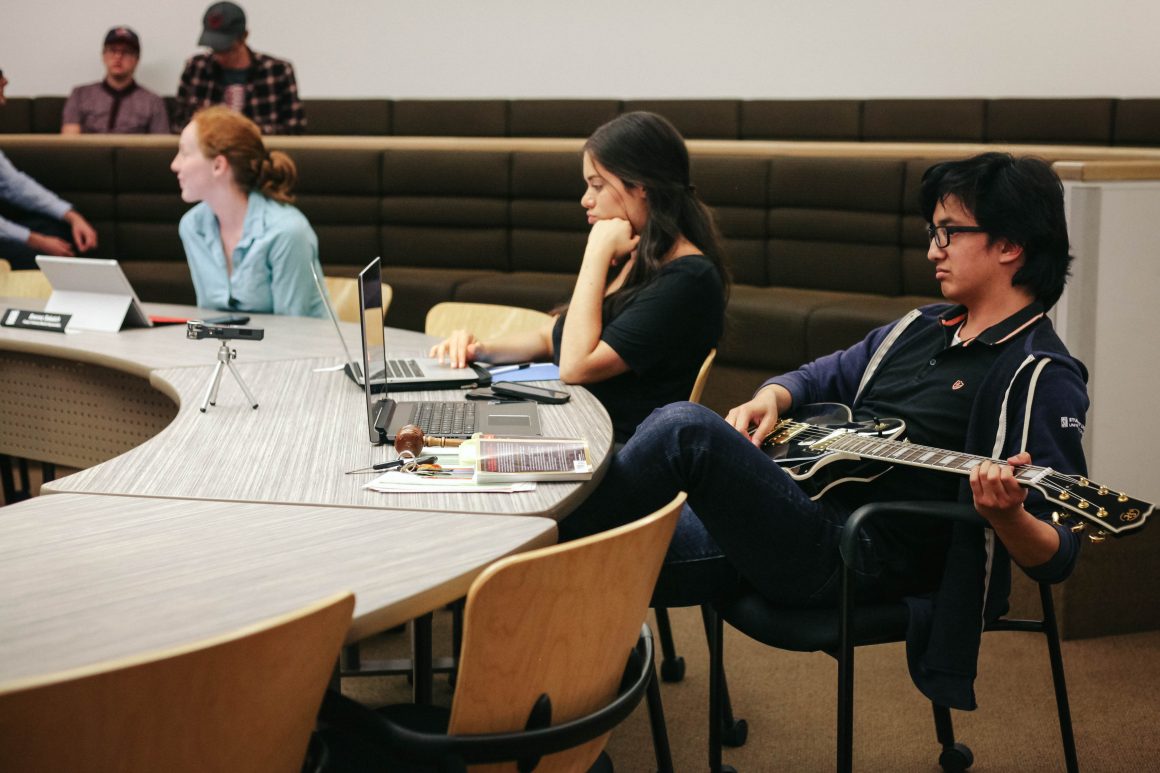
SLC fails to meet quorum, talks about code of conduct anyway
By Sean Willett, August 2 2017 —
The August 1 session of Students’ Legislative Council did not come to pass. With only 10 members in attendance, SLC was unable to make quorum.
Of the five Students’ Union executives that sit on SLC, only vice-president operations and finance Ryan Wallace was present. President Branden Cave and vice-president external Shubir Shaikh were in Edmonton for a session with the Ministry of Advanced Education, while vice-president student life Hilary Jehalka and vice-president academic Tina Miller were both on vacation.
After quorum was not met at the scheduled 6:30 start time, SLC speaker Rio Valencerina began a 25-minute timer to wait for other representatives to arrive. During this time, SLC members spoke among themselves while Valencerina strummed a tune on his guitar.
After no other members arrived before the timer expired, the present SLC members instead decided to hold an ad-hoc discussion about one of the points on the planned agenda — the first draft of the SLC code of conduct. This discussion was led by Wallace, who also chairs the SU’s policy development and review committee (PDRC).
“I was disappointed that we didn’t meet quorum, but I think the feedback that the reps brought was very beneficial,” Wallace said. “We’ll be using those comments for future drafts.”
The code of conduct will be a document that outlines expectations for how elected members of SLC are expected to behave when holding their positions, as well as the potential consequences for not meeting these expectations. Wallace went through the first draft of this code with the other present members of SLC, who offered feedback on the language used in the document.
Wallace singled out comments made by kinesiology representative Sagar Grewal and nursing representative Jessica Revington as particularly insightful.
“Grewal mentioned clarifying what an SU event is. It can be difficult because there are so many events related to the SU and providing more clarification on that makes sense to me,” Wallace said. “Revington made a good point about the wording in the document surrounding confidence, to make sure we don’t misrepresent what happens during the SU complaint procedure. We don’t want people to think that when they make a complaint their identity is kept confidential.”
Wallace said that these points, as well as other feedback given by SLC representatives, will be used by the PDRC to revise the code of conduct in preparation for its final draft. The first draft is currently available to students by request to the SU and Wallace encourages anyone with potential feedback to share it with him.
“Trying to get more perspectives on big things like the code of conduct is always beneficial,” Wallace said. “Even people outside of SLC who have comments on it, I encourage them to bring them to me. Policy is very interpretive, and I want to make sure it is interpreted as consistently as possible.”
